Syphilis is a complex sexually transmitted infection that affects both men and women, and it is caused by a bacterium called Treponema pallidum.
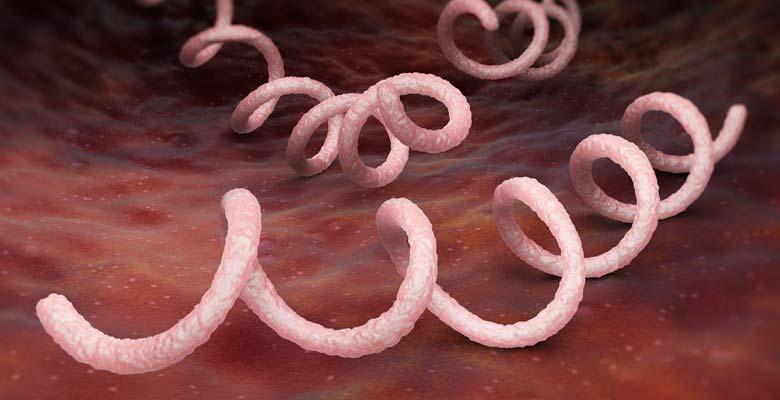
Keep up to date with any service changes, or make an appointment with our supportive and non-judgemental service
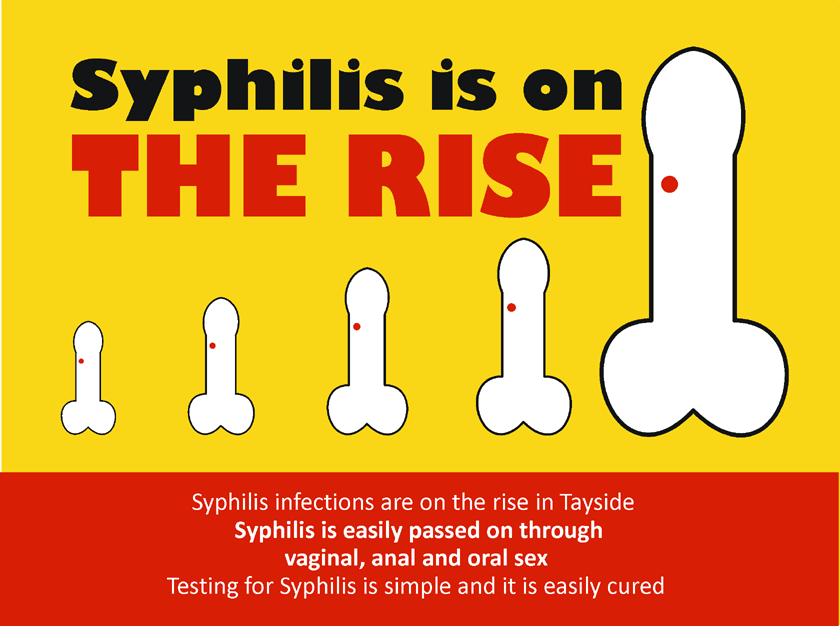
Over the past year or so, we have seen a dramatic increase in cases of syphilis across the UK!
Scotland and Tayside haven’t been immune to it and we are seeing more infections than we have ever seen before. Most of these infections are seen in men who have sex with other men (MSM) but we are also seeing increased cases in heterosexual men and women.
Key points
Syphilis is a complex sexually transmitted infection that affects both men and women, and it is caused by a bacterium called Treponema pallidum.

Until recently, syphilis was not very common. However, there has been a rise in the number of syphilis infections, particularly among men who have sex with other men.
Early Syphilis can affect the body in two stages, but often you may have no symptoms at all.
Primary stage (will show within 10 days – 6 weeks) usually a small, red ulcer/sore on the genitals or sometimes around the mouth which heals itself after 3-6 weeks. There may be one or more and they can be painful or painless. You might also notice swollen glands in the area near the sores. If syphilis is not treated it will progress to the second stage.
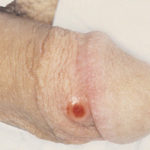
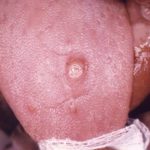
Secondary stage (will show within 1 week – 6 months after the first stage) may show a rash on the skin, particularly on the palms of the hands, and soles of the feet, and often on the trunk/torso (chest, stomach and back).
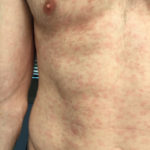
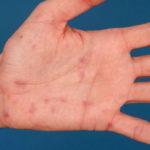
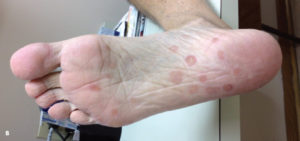
There may also be swollen glands, headaches, aches and pains, hair loss, deafness or eye problems. These symptoms may disappear within a few weeks, after which you experience a latent (hidden) phase with no symptoms, which can last for years. After this, syphilis can progress to its third, most dangerous stage.
Often has no signs or symptoms, but the syphilis is still in the body and will show up only in a blood test for syphilis. If left untreated, damage can be done to the brain, nervous system, bones, eyes and other organs, and this may not be apparent for years.
Vaginal, anal and oral sex all pass on the infection and it can be easily spread. Even if you have had the infection before you can catch it again.
Syphilis can be passed on from a pregnant mother to her baby at any stage of the pregnancy. If syphilis is found during pregnancy it can be treated to prevent the infection being transmitted to the baby. Pregnant women are routinely offered syphilis testing along with tests for HIV, Hepatitis B and Rubella.
Blood transfusions can transmit syphilis but all donated blood in this country is tested for syphilis.
It is important if you are sexually active to have regular sexual health checks for chlamydia, gonorrhoea, HIV and syphilis especially if you have a new partner or have had multiple partners.
You can get a full sexual health check up in a welcoming, confidential setting at a Sexual Health Clinic (formerly Genito-urinary or GUM clinic). The staff are specially trained and very experienced in helping people who are concerned they may have an infection. The test normally involves a blood test; if an ulcer/sore is present a swab will also be taken. For some people syphilis may not show up in the blood test straight away and so it may need to be repeated. This is why it is important to have regular sexual health checks.
You can make an appointment for with Tayside Sexual & Reproductive Health services on:
01382 425 542
click here to find your nearest clinic
Testing can also be performed by your GP.
Yes, syphilis can be treated and cured, with antibiotics. It is important if you are treated for syphilis that you go back to the clinic to check the infection is completely gone, and to ensure your partner is also treated so you do not re-infect each other. Also, avoid sexual contact until you and your partner have got the all clear. Follow up is usually for 12 months.
The symptoms may go away by themselves, but syphilis will not go away without treatment. If left untreated, you may develop serious complications in the future and you could pass it onto sexual partners.
The best way to stay free from sexually transmitted infections is to practice safer sex and attend for regular sexual health checks. Syphilis can be passed on through oral, vaginal and anal sex. Using a condom or dental dam will reduce the risk of contracting a sexually transmitted infection. Syphilis sores are very infectious and can sometimes be on areas not covered by the condom, or be hidden in the vagina, rectum or mouth, so take care.
If you have any concerns about syphilis please attend your local sexual health clinic.
Below you will find images for use on social media, and posters to print and display!
Please contact Tay-UHB.tsrhs@nhs.net for any clinical concerns related to syphilis.